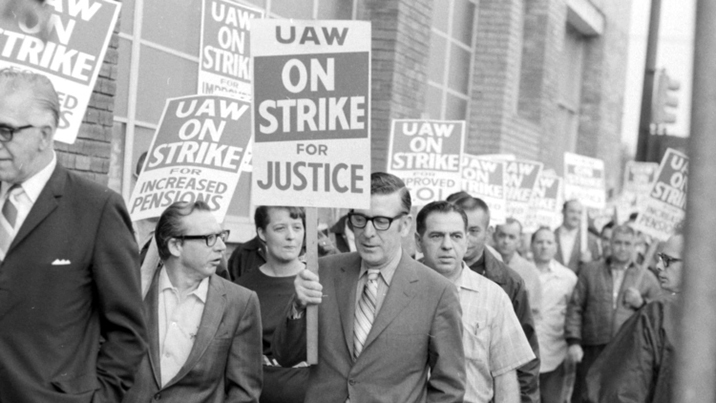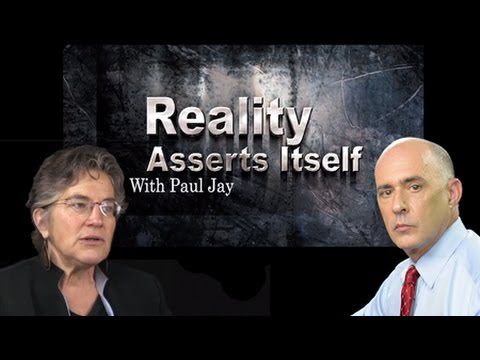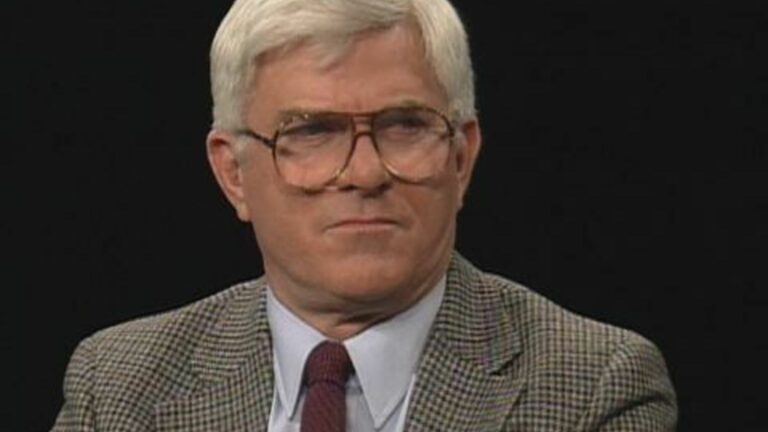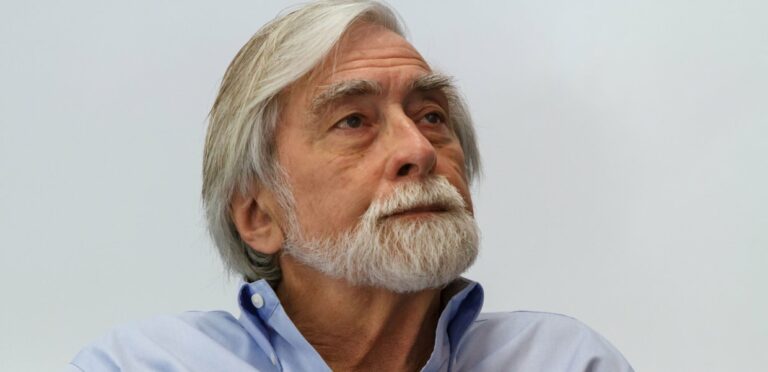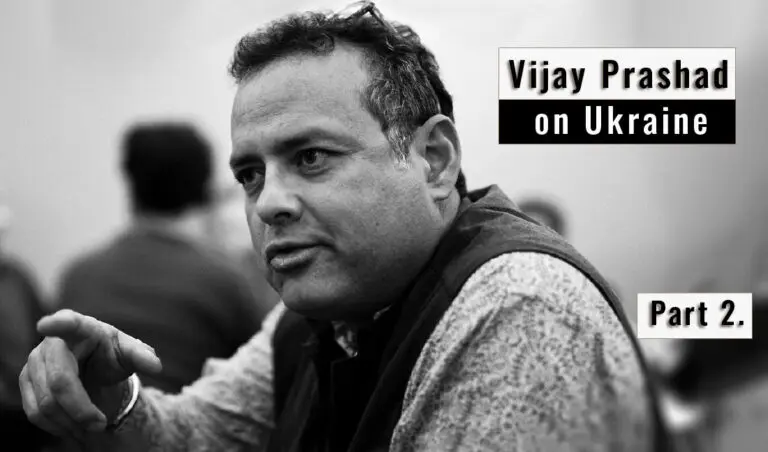This interview was originally published on October 7, 2013. On Reality Asserts Itself with Paul Jay, retired UAW Local President Frank Hammer tells the story of his radicalization in the movement against the Vietnam War and turning his back on a professional career to take up working class activism.
PAUL JAY, SENIOR EDITOR, TRNN: Welcome to The Real News Network. And welcome to Reality Asserts Itself.
Usually on Reality Asserts Itself–I say usually. We’ve only done three so far. But so far, we interview quite well known journalists and authors. Well, we’re also going to be talking to people who may not be quite so well known, but maybe they should be.
So now joining us today is our guest, is Frank Hammer. Frank is a retired General Motors employee. He worked there for 32 years. He was the former president or is the former president of United Auto Workers Local 909, and also worked at the GM department of the United Auto Workers. He’s an adjunct faculty member at Wayne State University, and he’s a passionate defender of his adopted city, Detroit.
Thanks for joining us, Frank.
FRANK HAMMER, COFOUNDER, AUTOWORKER CARAVAN: Thank you for having me.
JAY: So the reason I want to interview you is you’ve been in the labor movement as an activist for more than 30 years, ’cause you’ve continued as a very active player and activist in Detroit and autoworker politics after you retired. And on Reality Asserts Itself, the way we usually get started, we start with trying to find out why someone thinks what they think, how they kind of got where they are, before we get into some of the issues.
So start a little bit from the beginning. I mean, you were born in Ecuador, you lived your first seven years in Ecuador, and then you moved to the United States. And what are the sort of events that helped form your political views, your view of the world? What kind of family were you from? Was it a political family? If it was, what kind of politics? Give us a little bit of that background.
HAMMER: Okay. My family was originally German, and they left Germany in 1933, even though they were of the Lutheran persuasion. Their history was Jewish, but they–two generations before my father’s, they assimilated. In an effort to assimilate into Germany, they converted to Lutheranism.
JAY: And did they leave in ’33 ’cause they thought that Jewish ancestry may come to threaten them?
HAMMER: Yeah. My father, to his credit, saw the winds of change taking place in Germany, and in 1933 understood the threat to him and his family, and actually left for France, and actually tried to join the French military in order to fight fascism (they did not accept him because of his age), and lived there a few years until 1938. And in 1938 he left for Ecuador.
JAY: And what did he do?
HAMMER: He was a son of a rich factory owner, actually. He was the son of a man who produced [h{m3`] shoes in Germany, which were, apparently, quite a reputable shoe. And he did not want to go into his father’s footsteps. He wanted to, you know, be a pilot, he wanted to do other things. But he ended up being a salesman for his father’s shoe firm.
JAY: And so he moves to Ecuador. And what–his politics then: he’s antifascist, he’s political enough to actually want to join in the fight against Hitler. Moves to Ecuador. And then what? When do you arrive?
HAMMER: Well, when he went to Ecuador, he was basically an entrepreneur and set up various businesses. He managed a hotel in Guayaquil. He managed a tire retreading plant. He did a variety of things.
And we eventually–the family–I was born in 1943. My brother preceded me by five years. He was born in France. Three months after he was born is when the family moved to Ecuador.
We arrived in New York essentially round 1951. And his decision to come to the States partly had to do with my mother having surgery and my father wanting to have a better life for his two sons.
JAY: So he’s an entrepreneur. He comes from a pretty successful capitalist family.
HAMMER: Yeah.
JAY: So is he political? If he is, where do put him on the spectrum?
HAMMER: He was not political, and certainly not in any way that he was active. I mean, he was sort of an outsider in Los Angeles. He always viewed the U.S. through the prism of an outsider, of an immigrant, and was basically–admired many things about America or the U.S. And at the same time, he also disparaged elements about U.S. culture. So it was sort of a mixed bag. He was an avid reader of Time magazine. So if that shapes your politics, that’s what shaped his.
JAY: Now, I note some time later you make quite a conscious decision to get a working-class job, that you’re in university and you decide that because of your political views and I guess what gives you meaning in your life you wanted a working-class job. So how do you get growing up there to there? Like, what shapes you?
HAMMER: You’d have to–along with the sort of background that I had–. And, by the way, I mean, I was named after Roosevelt. So you can imagine, my father’s in Ecuador, but he thinks to name me after the president of the United States. So I think that had a sort of a political cast to it from the start.
But I think the biggest factor, of course, was going to the University of California, Berkeley. I had decided in high school that I wanted to be an architect, so I went to architecture school in Berkeley. And that was from 1961 to 1967.
And, of course, I came slambang right into a political movement going on in Berkeley after a few years that I was there called the Free Speech Movement. And my first awareness of that was seeing 300 motorcycle cops going down the eastern edge of the university campus, going to Sproul Hall, where there were, you know, thousands of students sitting in a sit-down around a police car having to do with the question of free speech. And that was a real wake-up call for me.
JAY: For people that don’t know, just give some real–little more context about that moment.
HAMMER: The Free Speech Movement was really an outgrowth of the civil rights movement in the South. And there were active students on the University of California campus who were going to Oakland, The Oakland Tribune next door in the neighboring community, and challenging the discriminatory practices of The Oakland Tribune. And as a result, the Oakland Tribune owner–and I forget who it was–called the University of California and said, listen, you know, we can’t have all these students coming over here protesting our racist policies. So the university tried to clamp down on the students and said, look, it’s very fine for you all to talk about these great ideas here on campus, but you’re not supposed to be taking them off-campus and actually implementing them in the real world. So that was the basis of the conflict.
JAY: So you’re on track to be an architect, which–you know, you’re a smart guy. You in all likelihood would have been a successful architect and made lots of money and had the 1950s American dream. This is in the midst of the Cold War. I mean, how much did you buy Cold War narrative prior to this experience in University?
HAMMER: It’s funny, because when I left high school, I remember fellow students saying, oh, you know, you’re going to this school where there’s a bunch of communists.
JAY: How much did the Cuban Missile Crisis affect you? I know for me, I’m a little younger than you are, I must’ve been about 12 or something, 12 or 13 at the time, and it made me decide that I was not likely to live past 20 years old. I was quite convinced there would be a nuclear war. And, you know, it led to me actually wanting to quit school, ’cause I figured I’m not going to spend the only years of my life before the world blows up in a classroom. I mean, how much effect did it have on you?
HAMMER: I don’t remember it having that kind of an impact on me. It did show me something of the hypocrisy about U.S. foreign policy. That’s what I saw in it, for the reason that I just cited.
And during the Free Speech Movement, I think one of the things that really opened my eyes more was how Time magazine elected to report the events that were going on on my campus. So I had some intimate familiarity with what was going on on campus. And then when I read it in the Time magazine, I said, wow, this is a total distortion, because they put in the framework of this is the work of communists that was going on on the campus. And while I understood that there were in fact members of the Communist Party on campus, this was a popular movement among students. It was much broader than the communists that were active in this movement. So I could see that the Time magazine had a narrative that it was promoting, and it made the facts fit that narrative. And that was very important for me.
JAY: And even that impression of, you know, communists, I mean, you know, in those days it’s all portrayed essentially as Russian secret agents with some nefarious conspiracy afoot.
HAMMER: Correct. Correct. Correct.
JAY: And, I mean, more or less they’re American left-wingers who adopted communist ideas, and rightly or wrongly they were fighting for them. But the specter of communism in those days was the devil’s coming for you.
HAMMER: Yeah. What I saw in them was an effort to fight discrimination. And, you know, what I understood is that they were a champion of rights of minorities at that time.
JAY: So you get drawn into this Free Speech Movement. You get, I guess, more politicized. And at some point you have to make a fairly momentous decision in your life, which is you’re not going to have a career, it’s not going to be about being a successful architect, and you’re actually going to, you know, go get a working-class job.
HAMMER: It took a while. It took a while.
JAY: So what’s the process? And can you actually remember when you made the decision?
HAMMER: Well, there was a series of decisions, but you’d have to mention the Vietnam War as the context of all the changes that I went through, because I was, of course, of draft age and had the benefit of a student deferment. And, in fact, early on, I had–there was a test that we all had to take, and if you passed the test by a certain number of points, you maintained your student deferment; and if you didn’t, you were subject to being drafted. So there was a lot of protest about that. And it led to a protest about the draft in general, because here we were, students benefiting from a class privilege while working-class youth were being sent to the war.
My first antiwar demonstration was in 1965 in San Francisco. It was very impressive to me, and I deepened my activity in regards to the war.
And what I really came to–the changes that came about were understanding that if this is a society that can perpetrate this kind of genocidal war on Third World countries such as Vietnam, it really made me want to question a lot of things about the U.S. and about foreign policy and about the U.S. government.
So by 1967, I left, graduated from Berkeley, and went to the University of Michigan. I was a part of a program that required going to another disciplinary track. I went into sociology at the University of Michigan in Ann Arbor. Ann Arbor was hardly, you know, playing second fiddle to the University of California in terms of activity.
So in 1967 I already went to the demonstration at the Pentagon against the draft and wrestled with the question of my 2-S status for practically about a year, and first thought I was going to do a conscientious objector route, did a lot of study of Martin Luther King’s writings and also Mahatma Gandhi’s writings on nonviolent resistance. And in 1968 was one of those momentous decisions, when I decided to return my draft card to my draft board and made myself subject to two years in prison. So that was one of the decisions.
JAY: Even though you were exempt.
HAMMER: Even though I was exempt. It was actually because I was exempt that I thought that this was taking advantage of class privilege. And I really even at that point found that really unacceptable. And I also wanted to find some kind of effective way to get in the way of the war machine. And I thought that–.
JAY: So why do you think you and others take a stand like that? ‘Cause a lot of people didn’t. A lot of people went on to be architects.
HAMMER: Because I found the war and its genocidal aspect so abhorrent that I thought that we had to do everything that we could and, as somebody at my age in my generation, to resist that war in every way that we could. And whether we did it against the war research on campus, whether we did it against ROTC on campus–there were many, many different ways. But I thought that to look at myself in the mirror, I had to take a principled stand.
I know there were a lot of guys my age that went to Canada. That wasn’t the choice that I wanted to take, because I thought that I didn’t want to in any way have anybody understand that I was evading the draft. I was actually wanting to resist the draft, and I thought that was the most effective way to do it.
JAY: And were there any consequence after you handed in the draft card?
HAMMER: I actually was called to active duty at Fort Wayne in Detroit. And the same week that that happened, there was a class-action suit that was successful that was filed against the board and against the draft board, who had been punitively reclassifying men such as myself as 1-A in retaliation for returning my 2-S deferment. And the class action actually threw that action out, and therefore I was given on second notice that I did not have to report to Fort Wayne. Otherwise I would have been in jail. And there are many young men who went into–who served time for their action.
JAY: So jump ahead to the decision that kind of finally sets your course, where you decide you’re going to be a worker, you’re not going to follow this career.
HAMMER: Well, I think that after that decision, inevitably you look at the world a little bit differently. And as I was doing graduate work at the University of Michigan, my understanding of what I was dealing with deepened. And we’re talking about now not just foreign policy, but we’re talking about a whole system of, you know, subjugating peoples around the world to an economic system that governs this country and that, you know, sought to exploit people in Third World countries, either their resources or their labor. And as I understood, began to understand the systemic nature of it is when I understood that I did not want to be a servant of the class that was behind this and the class that was profiting, and I decided that instead I wanted to be of service to the working class that had material reasons for being opposed to the class that was running the system.
JAY: Okay. In the next segment of the interview, we’ll pick up, I guess, with General Motors and your work there.
So please join us for part two of our interview with Frank Hammer on Reality Asserts Itself on The Real News Network.
Never miss another story
Subscribe to theAnalysis.news – Newsletter
“Frank Hammer is a retired General Motors employee. He worked there for 32 years. He is the former president of United Auto Workers Local 909 and also worked at the GM department of the United Auto Workers. He’s an adjunct faculty member at Wayne State University, and he’s a passionate defender of his adopted city, Detroit.”



